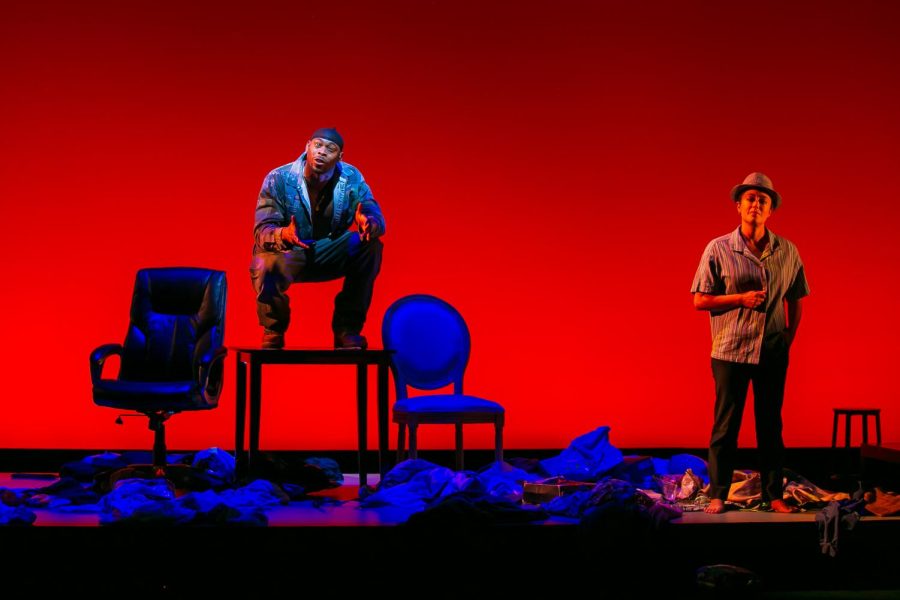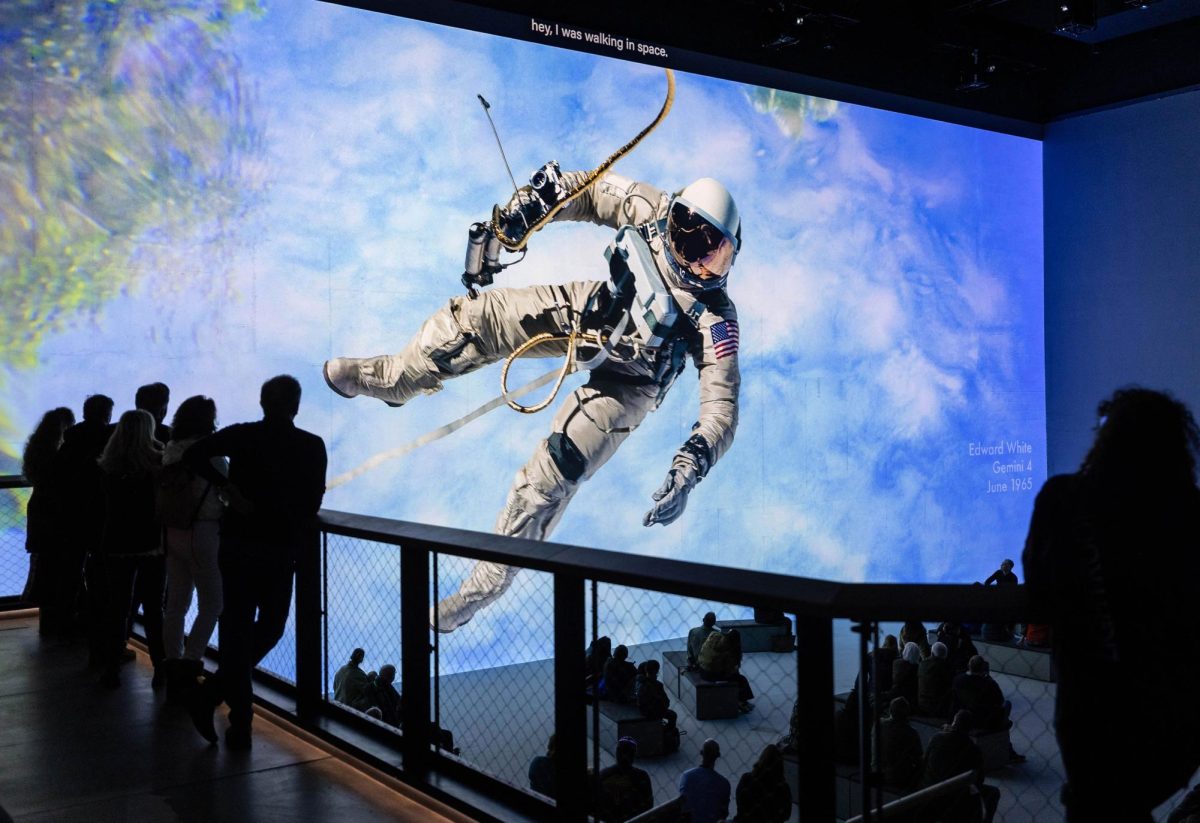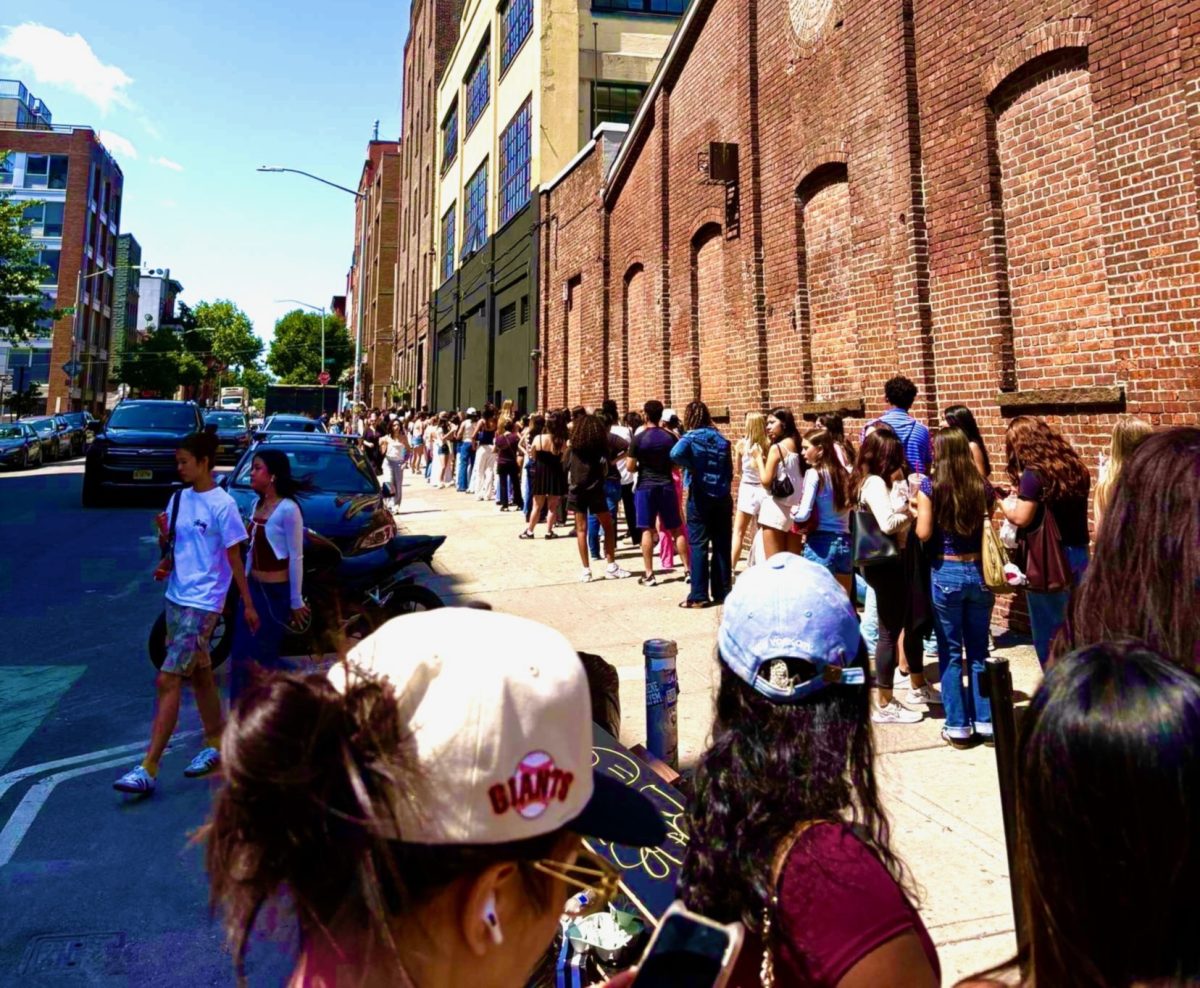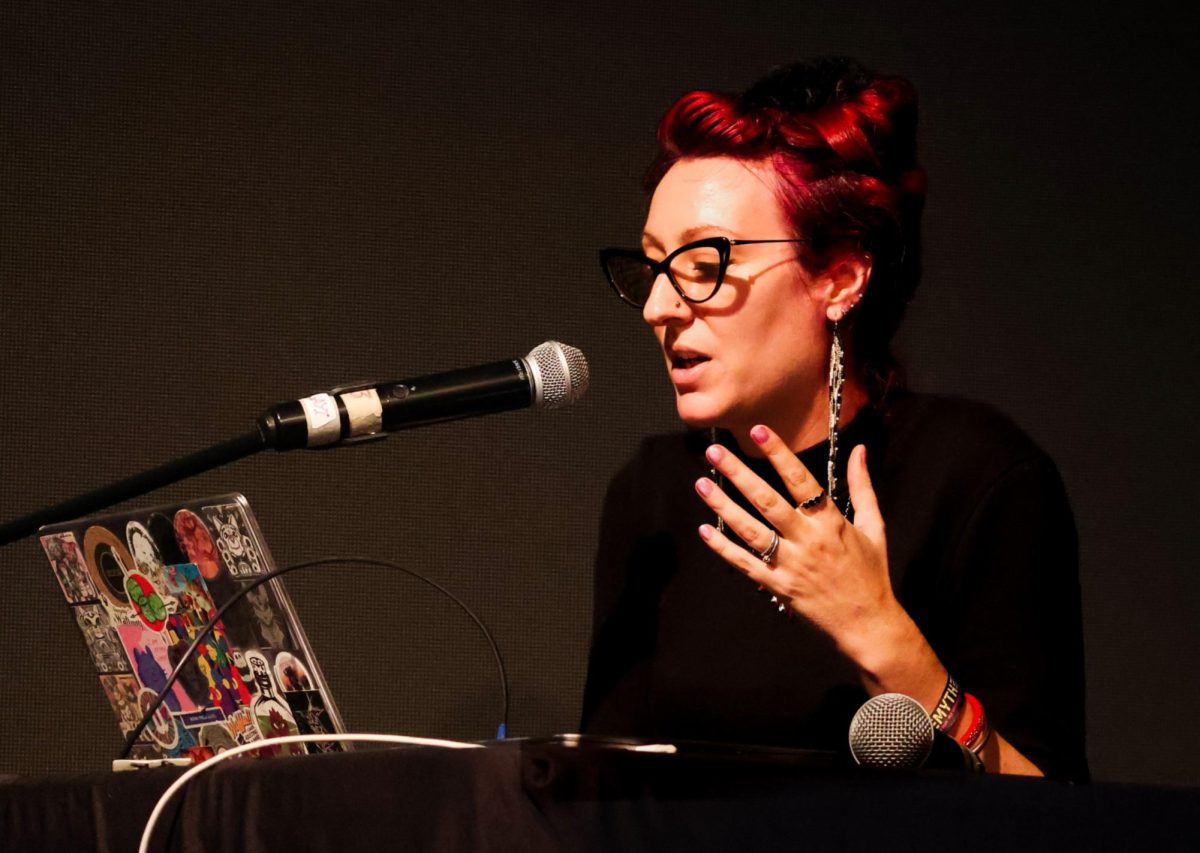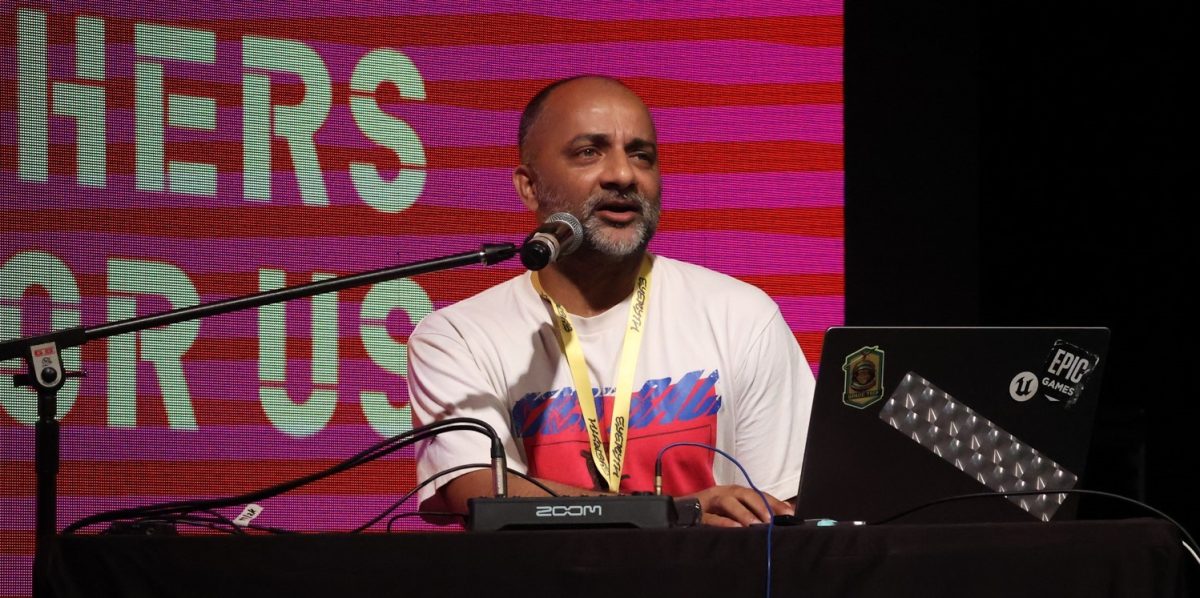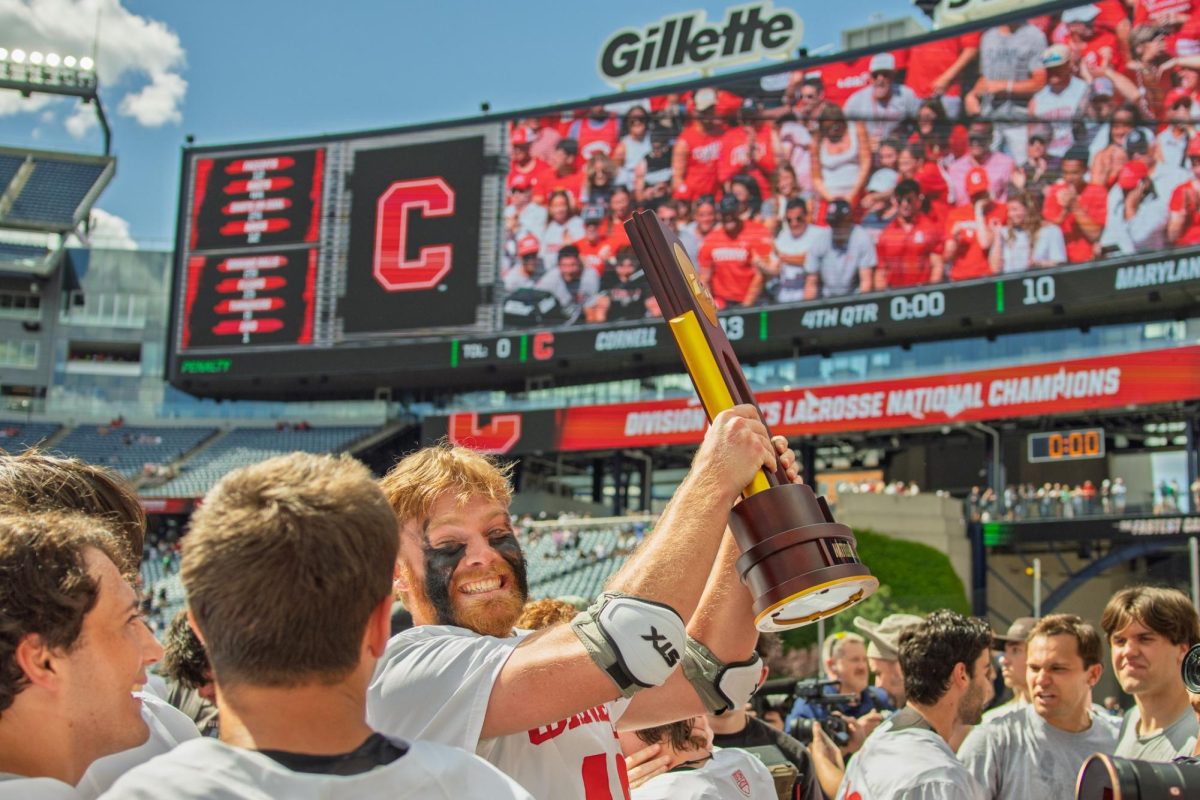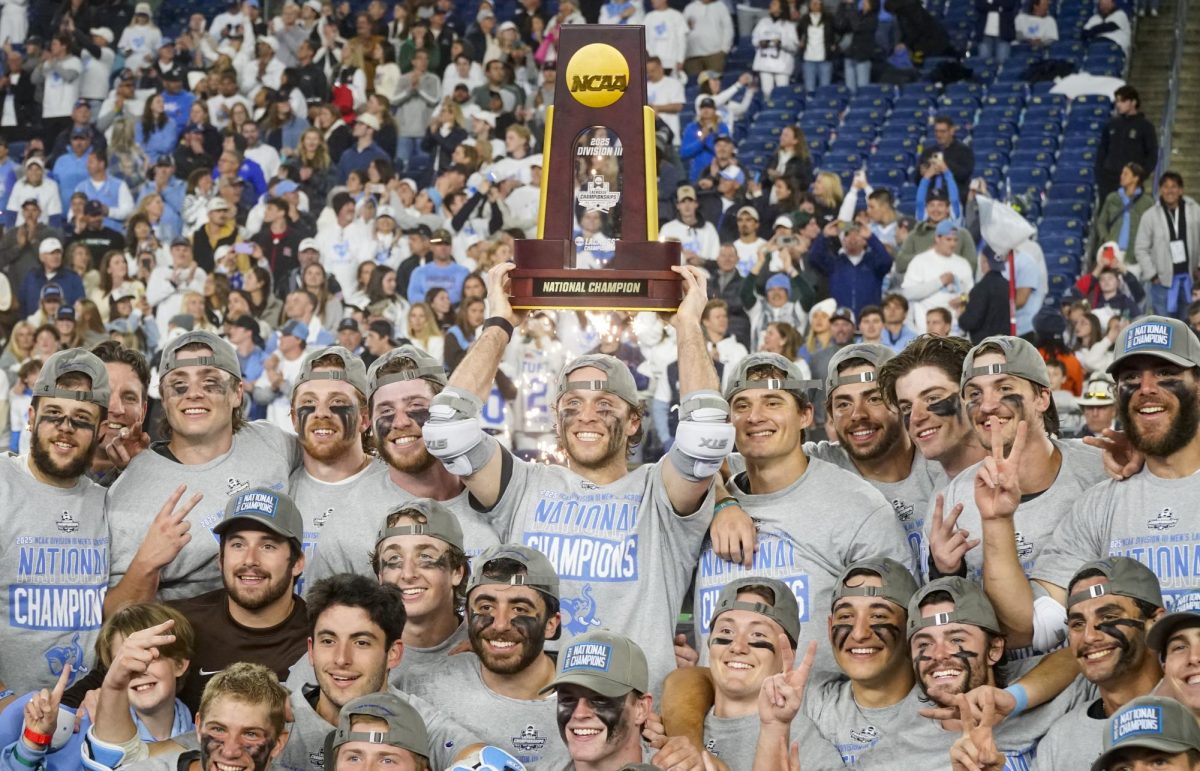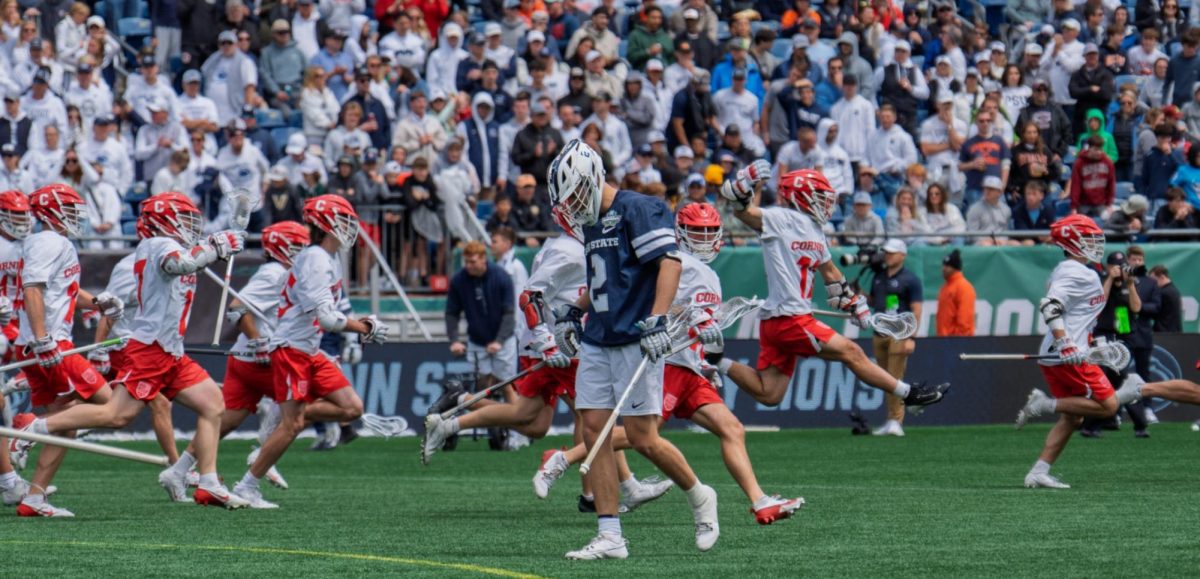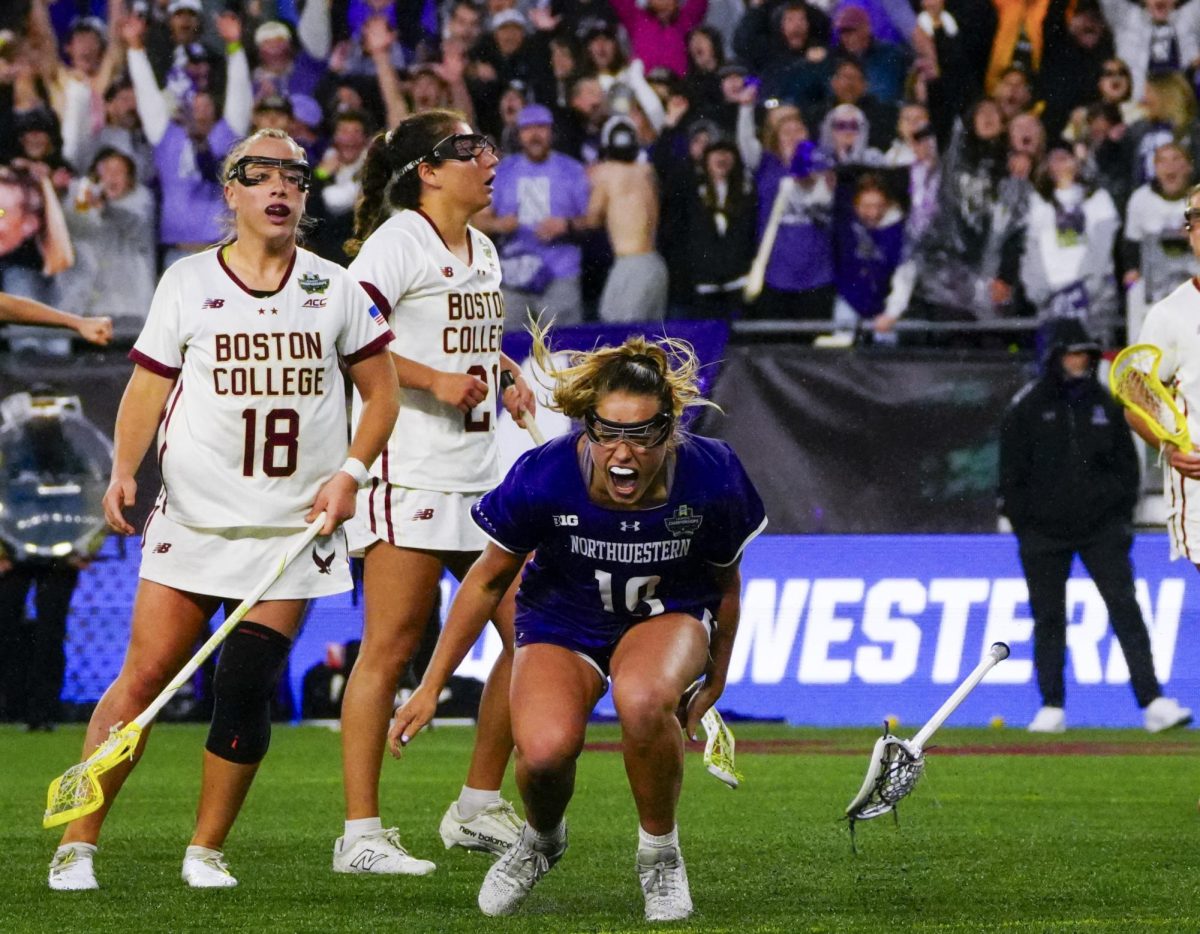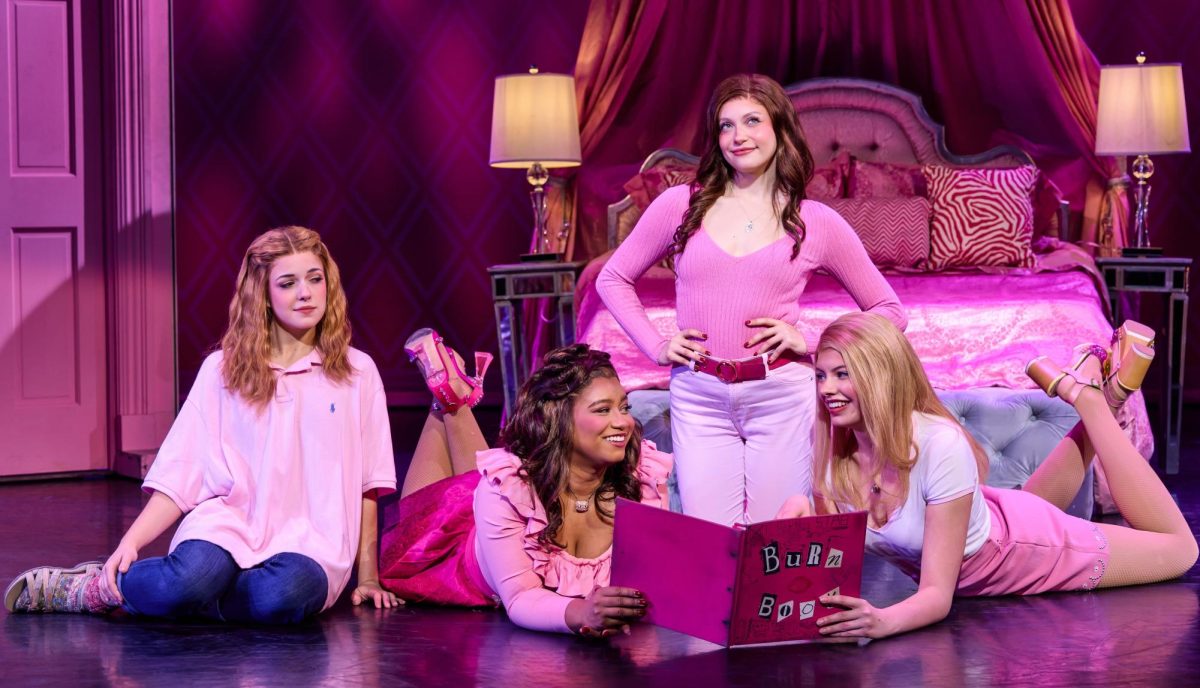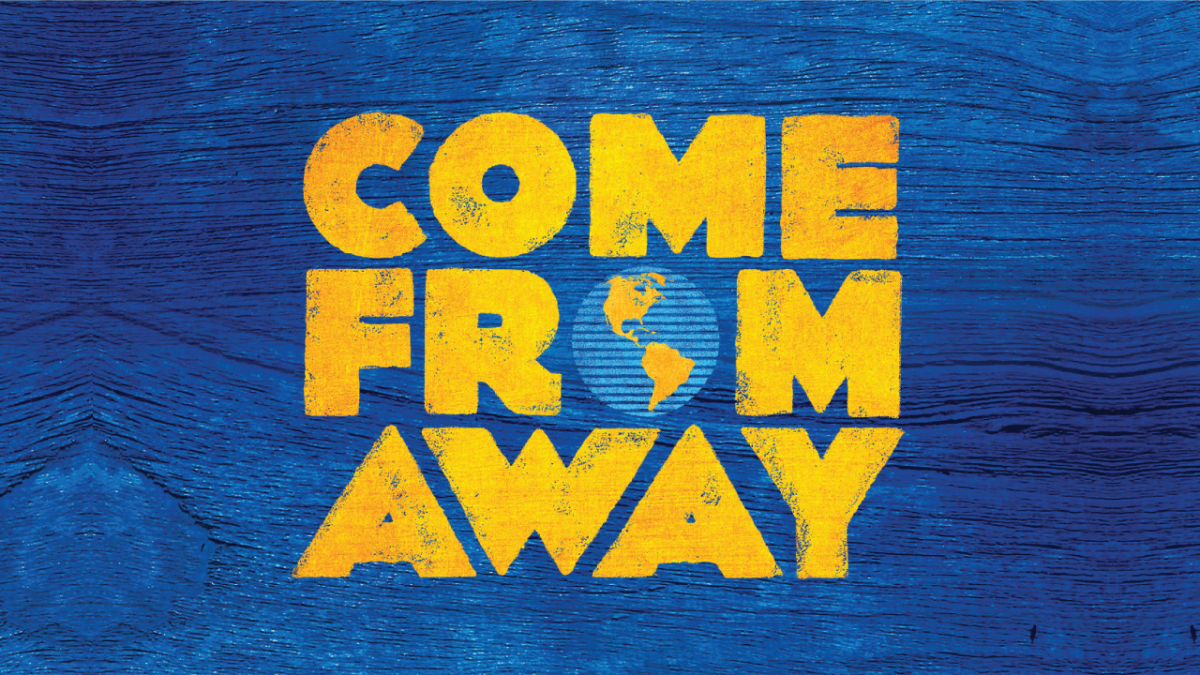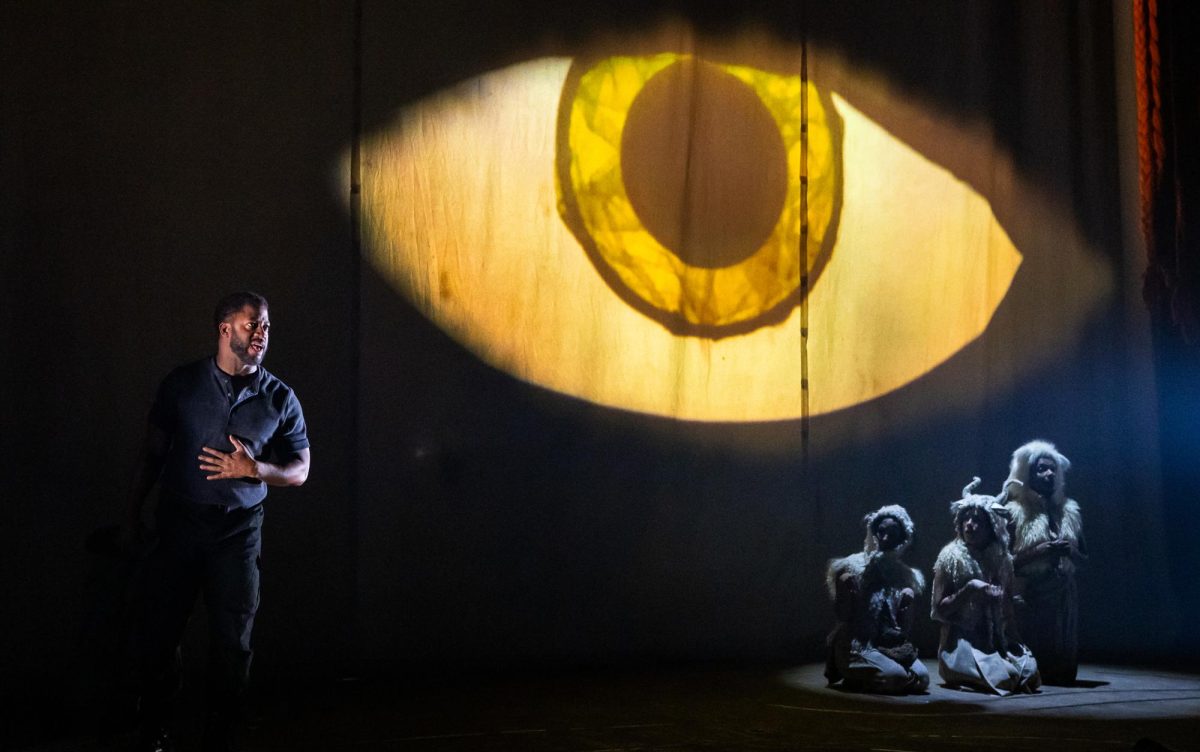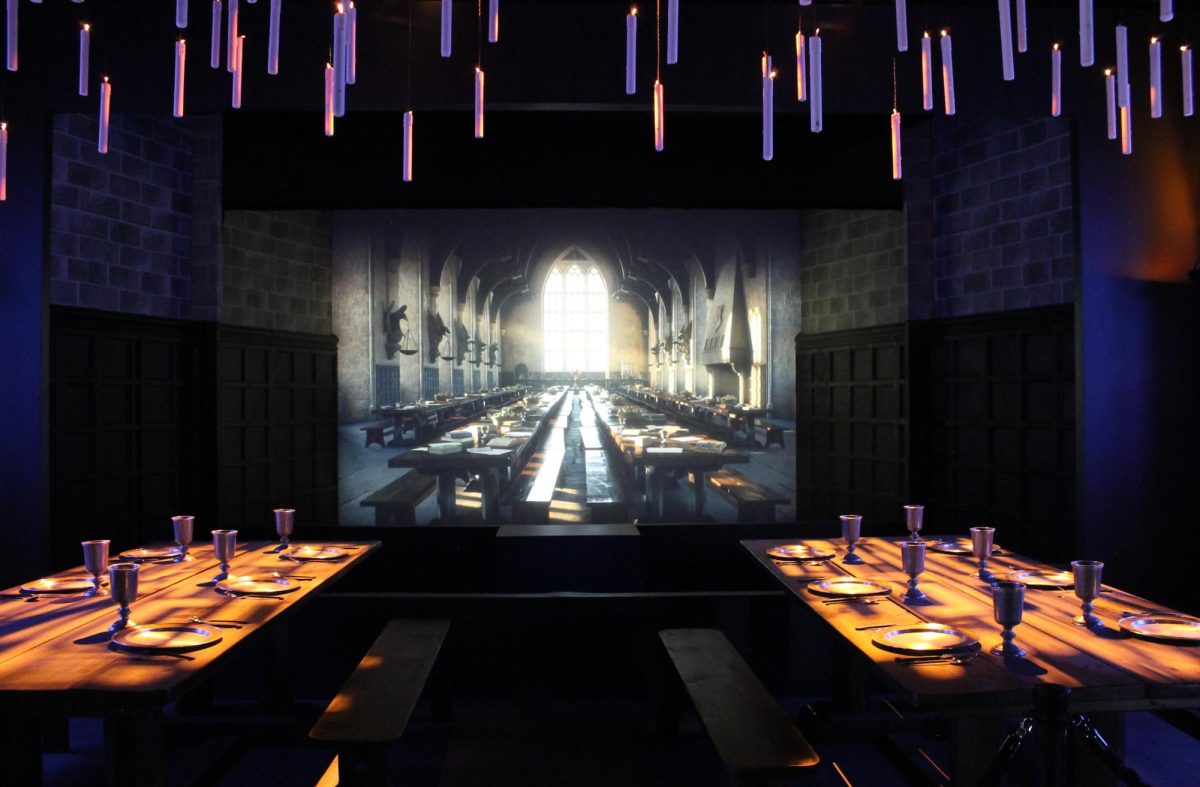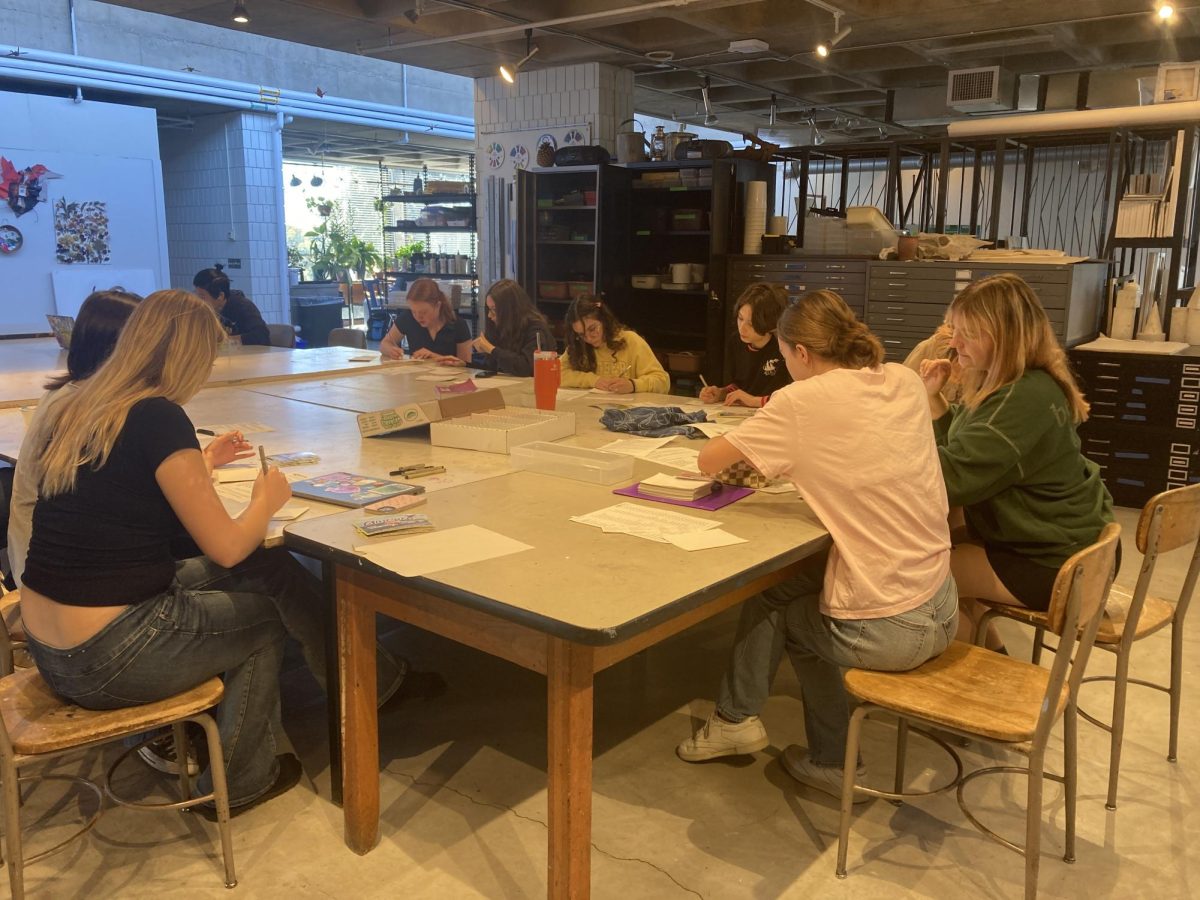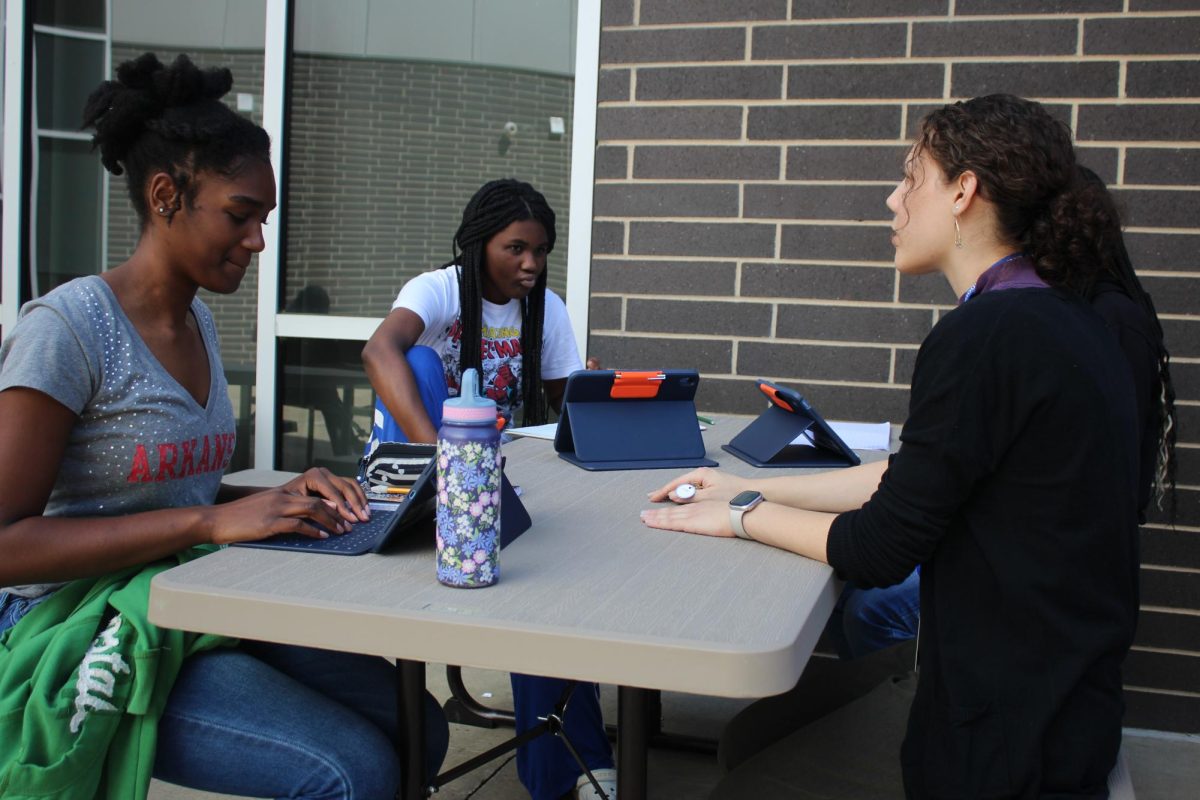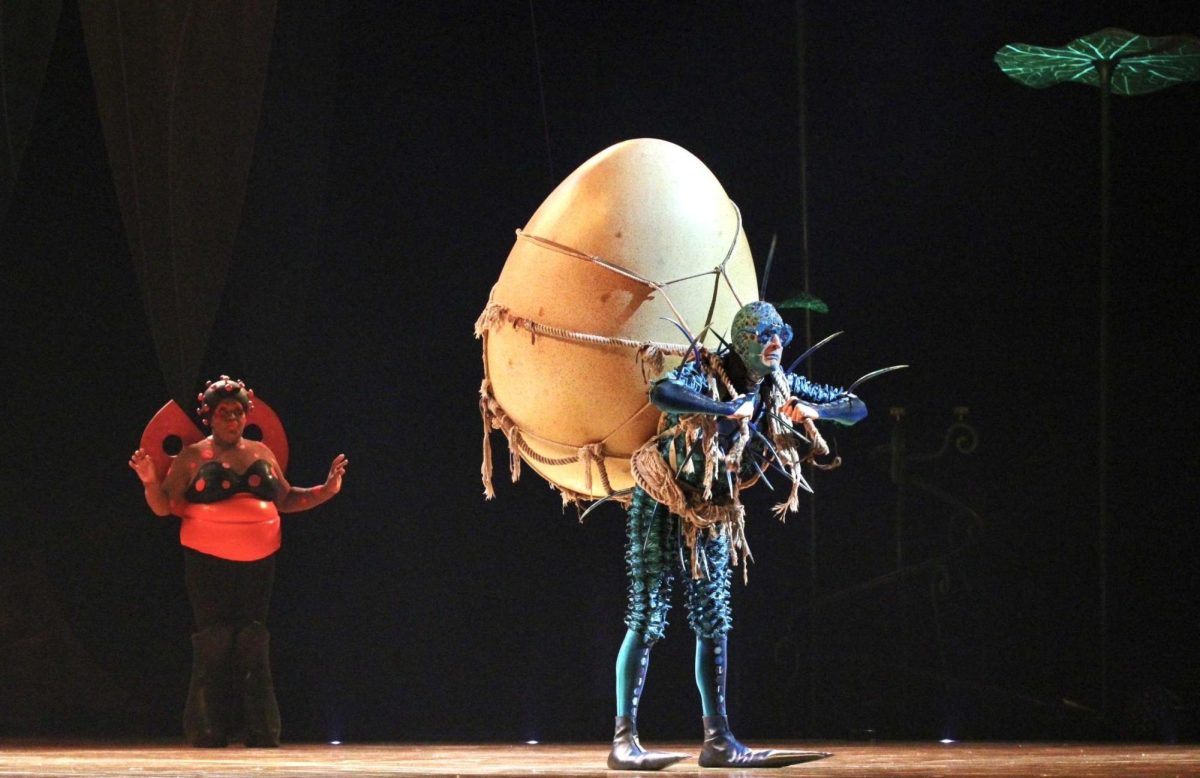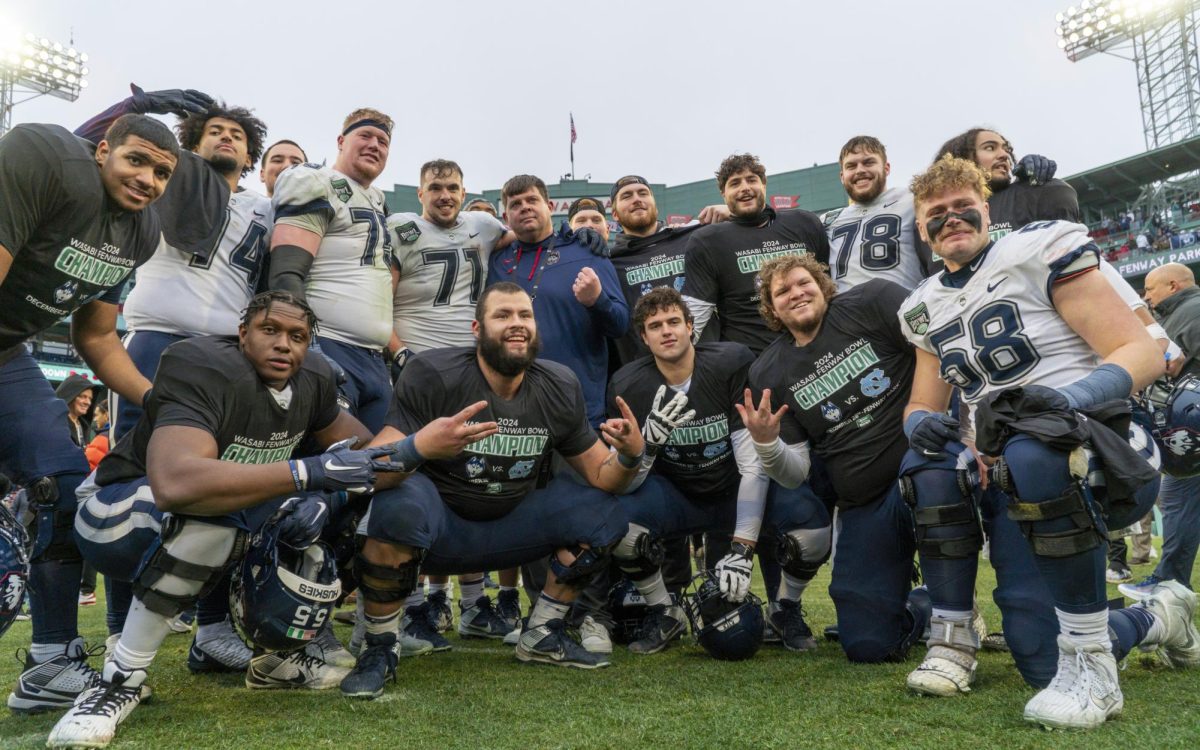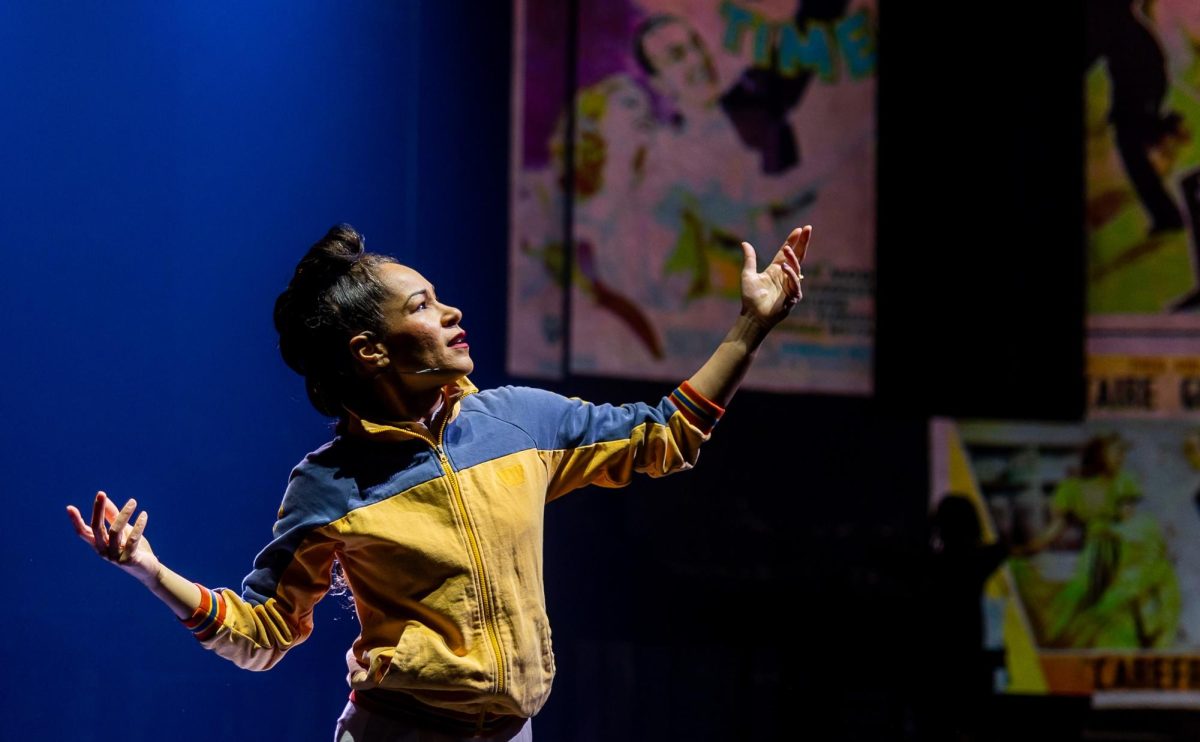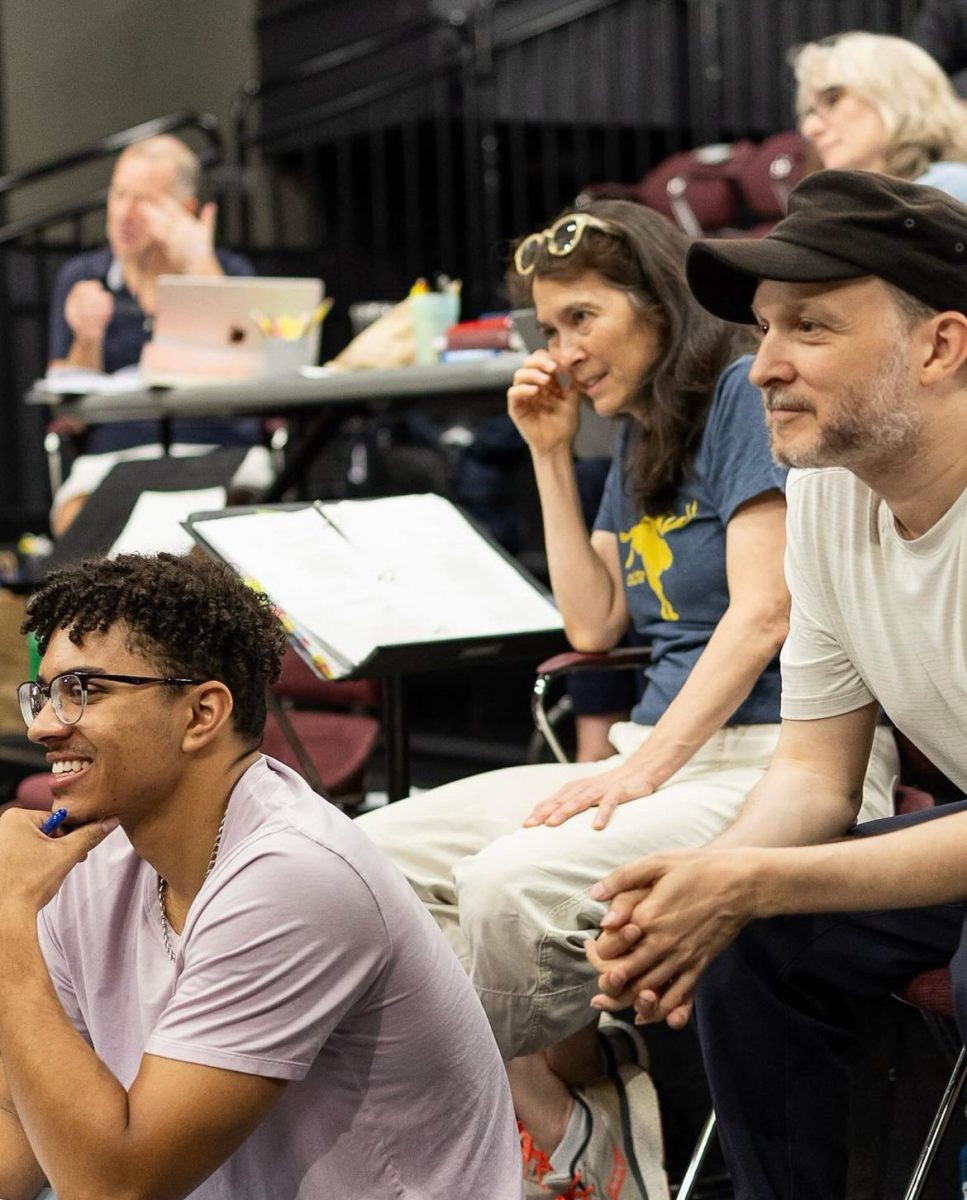“Twilight: Los Angeles 1992” examines issues unearthed in Rodney King riots with us today
American Repertory Theater showcases Anna Deavere Smith’s play through Sept. 24, documenting the L.A. uprising through more than 30 diverse perspectives
Wesley T. Jones as Keith Watson (left) and Elena Hurst as Hector Tobar in “Twilight: Los Angeles, 1992,” at American Repertory Theater in Cambridge through Sept. 24, 2022.
September 16, 2022
Journalism is the first draft of history, Philip Graham, the former publisher and printer of The Washington Post, once said. In its most common forms — newspaper articles, history books, and today’s photo and radio stories — those real people and events become just words on a page, images and soundbites chosen by somebody else. The nature of such journalism reduces an always complex and nuanced history to its most simple and inherently biased form.
Anna Deavere Smith’s “Twilight: Los Angeles 1992” is another kind of journalism, one that’s come alive.
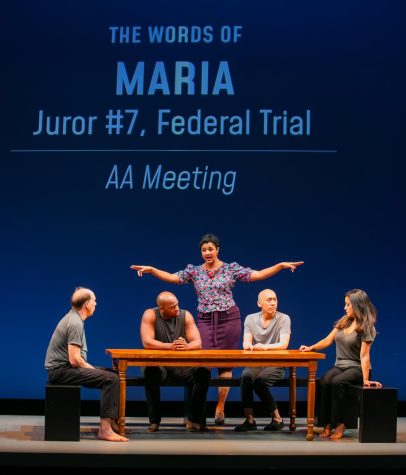
In her 89-scene, five-actor play showing at the American Repertory Theater through Sept. 24, Smith brings the riots following Rodney King’s beating to life, in a project that documents the confusion and nuance of the L.A. uprising through more than 30 diverse perspectives.
Just months after the 1992 Los Angeles uprising, Smith began interviewing what became 320 people who experienced the riots. By May 1993, she performed a one-woman-show based on these interviews in L.A. In 1994, the show premiered on Broadway. It was nominated for a Tony Award and won the Drama Desk Awards for outstanding solo performance.
Almost 30 years later, Smith has revised the show for a cast of five, in a world that hasn’t changed much. She acknowledges the parallels between George Holliday’s Sony Video8 Handycam CCD-F77 shaky footage of King’s screams and 17-year-old Darnella Frazier’s cell phone video that showed the world Derek Chauvin murdering George Floyd.
“Much has happened in America since 1992. And much has not,” Smith writes in “Gathering,” a note accompanying the show’s program.
To include a reference to Floyd’s beating, Smith added a character. So that her cast of five could play more than 30 characters, they transformed between each monologue to their next character, sometimes changing clothing and hair while they watched in the wings.
But sometimes, there wasn’t time to slip out of the spotlight to add or remove clothing, to switch out of character. Cast member Francis Jue switched characters before our very eyes — from Walter Park, a Compton businessman to Chris Oh, a medical student and relative of a Korean victim to the riot violence, and back again. This, he said, still out of breath as we caught up with him in the lobby after a recent performance, is just one example of Smith’s ingenuity.
“That’s what the brilliant thing that Anna does is: she gets people who never had the chance to talk to each other and listen to each other. And she gets to do it in the play,” he said. “I love now that I’ve done some studying, being able to switch very quickly from character to character because I get to experience them talking to one another, and not always agreeing.”
I had never before seen a show composed of just monologues, and at first, I zoned out — there was no dramatic back and forth that I could follow. The show required my sharper focus on the characters’ words and their mannerisms, and then I got it. The characters were in conversation with me. Or, Smith, as she interviewed them 30 years ago.
This is to gather, to begin a conversation, and for once, to listen to someone else’s perspective before arguing our own. This is the ultimate power of journalism: not only to document what happened, but to ask us to consider our relation to what happened, and how we move forward.
Such reflection is just a start, Jue said.
“Anna’s the first one to say, ‘Talking is not going to solve these systemic problems, these historic problems that we live with now.’ But getting together and just gathering and being allowed to disagree, being allowed to actually have a conversation and not like, go for each other’s throats or cut each other out or disenfranchise each other; just gathering is the first step,” he said.
TICKET INITIATIVE FOR STUDENTS
“Twilight” will be showing at the Loeb Drama Center in Harvard Square until Sept. 24. Through a ticket initiative, the American Repertory Theater will provide 1,000 free tickets to public high school students, and tickets priced at $5 to anyone who self-identifies as benefitting from a subsidized ticket. For information, go HERE.
–Sept. 15, 2022–

